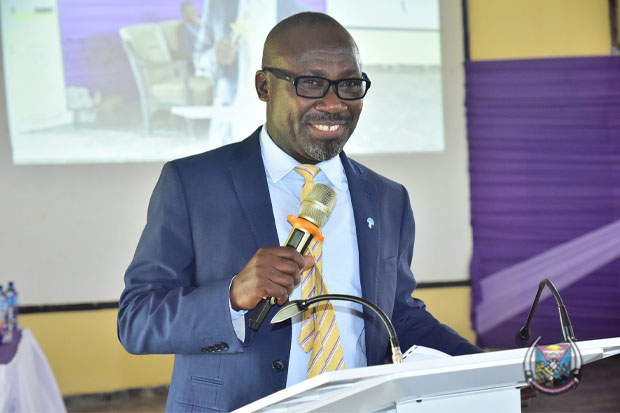

The Director, Centre for Coastal Management, African Centre of Excellence in Coastal Resilience, University of Cape Coast Ghana, Professor Denis Aheto has said that the blue economy space in Africa and Nigeria entails enormous potential for sustainable economic growth, job creation and social inclusion while preserving the health of ocean ecosystems.
He stated this while delivering the 10th inaugural lecture of the School of Earth and Mineral Sciences with the topic Blue Economy: Harnessing its Potential and Addressing its Challenges towards a Sustainable National Economic Development.
He said Nigeria as a nation can utilize marine ecosystems to diversify the economy and tackle challenges like food security, energy needs and environmental preservation adding that," The most relevant opportunities regarding the use of the oceans for economic growth in Nigeria are in existing sectors such as fisheries and aquaculture, blue tourism, maritime transport and logistics and in emerging sectors such as marine energy, marine and sea bed mining and marine biotechnology.”
Professor Aheto said to fully exploit these opportunities it is important to address several complex challenges on the continent which include overfishing, illegal and unregulated fishing, marine pollution, climate variability, climate change impacts, weak national and legal frameworks and challenges in accessing reliable financial solutions.
The don said the way forward requires a clear solution supported by a consistent, efficient and broadly assumed road map for its implementation. According to him this must include: a more detailed assessment of the Blue economy's potential in Africa; a multi-level dialogue at all levels; definition of priorities; sound implementation, monitoring and evaluation system; and cross cutting issues will need to be addressed to tap the existing opportunities in the Blue Economy in Africa.
In her address, the Vice Chancellor Professor Adenike Oladiji also aligns with the position of experts about the huge potentials of the blue economy in Africa. According to her, “The Ocean covers more than 70% of the surface of our planet and it is a massive resource in various forms – source of water and minerals (salt), food (fish and other aquatic animals) and route of transportation, without which the movement of most of the heavy industrial and agricultural products would have been impossible. The United Nations places much premium on the importance of oceans, and for that reason, the goal number 14 of the 17 Sustainable Development Goals is Life below Water. The World Bank defines Blue Economy as “Sustainable use of ocean resources for economic growth, improved livelihoods and jobs while preserving the health of the ocean ecosystem”. From the World Bank’s definition of Blue Economy, the interfaces with the Lecture of today are obvious – Harnessing the Potential/Sustainable Use; Addressing the Challenges/Preserving the health of the ocean ecosystem."
She said it is therefore important for us to understand the importance of oceans and water bodies in general and connect with them ecologically and most responsibly to have a healthy cycle.
The Vice Chancellor commended the dean for his tenacity and leadership acumen adding that the choice of the topic of the lecture clearly indicates how sensitive the leadership of SEMS is to our socio-economic and political circumstances.
Earlier in his welcome address the Dean of the school, Professor Yekini Anifowose said that the school will continue to improve on the high academic standards it is known for. He commended the alumni and corporate bodies for their continued assistance adding that all members of staff have remained committed and dedicated in the delivery of their duties and impartation of knowledge.